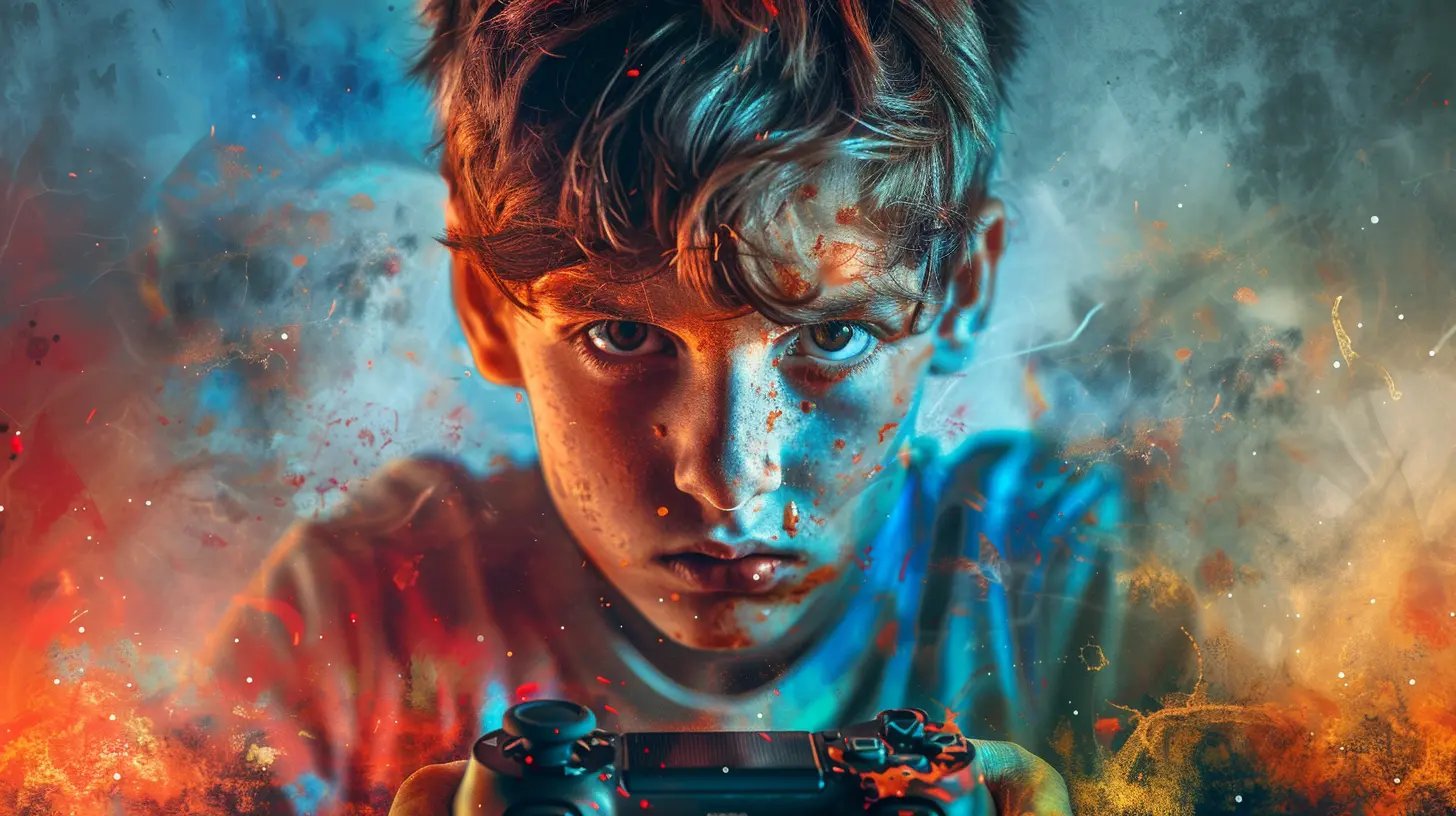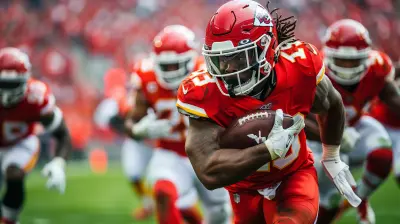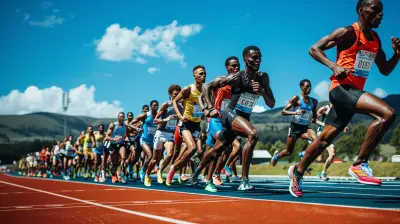The Cultural Impact of Esports on Modern Youth
24 June 2025
Esports has skyrocketed in popularity over the past decade, and it seems like it's not slowing down anytime soon. What started as a niche community of gamers battling it out in their bedrooms has turned into a billion-dollar industry with global reach. But beyond the flashy tournaments, sponsorship deals, and sold-out arenas, there's something else at play here—esports is leaving a significant mark on the culture of modern youth.
Esports, short for electronic sports, is competitive video gaming at a professional level. And, just like traditional sports, it comes with its own set of influencers, role models, and communities. But what does this mean for today's young people? How has esports shaped their identities, how they socialize, and even how they see the world? Let’s dive into the cultural impact esports is having on modern youth.

The Rise of Esports: A New Era for Youth Culture
If you rewind a few decades, video gaming was often dismissed as a mere hobby or, worse, something that could rot your brain. Fast forward to today, and competitive gaming is seen as a legitimate career path. Esports athletes train for hours, compete for millions of dollars, and have fan bases that rival traditional sports stars.This shift has changed how young people view video games. No longer seen as just a pastime, gaming has become a way to achieve fame, success, and even wealth. Esports is now a mainstream phenomenon, and with that comes a whole new lens through which modern youth see themselves and the world around them.
A Global Movement
One of the most profound impacts of esports is its global nature. Unlike traditional sports, which can sometimes be limited by geography or physical ability, esports is accessible to almost anyone with a computer, console, or even a smartphone. Young people from around the world can log into the same game, compete on the same stage, and share the same experience, regardless of where they live.This has fostered a sense of global community among young gamers. Whether you're in South Korea, the United States, or Brazil, you can partake in the same esports culture. The shared language of gaming has allowed youths to connect across borders, breaking down cultural and linguistic barriers. It’s like being part of an international club where the only requirement for membership is a love for gaming.
The Appeal of Esports Role Models
Esports has also given rise to a new breed of role models for modern youth. In the past, kids might have looked up to athletes like Michael Jordan or Serena Williams, but today, they might just as easily idolize someone like Faker, a professional League of Legends player, or Ninja, a Fortnite superstar.These esports athletes are more relatable to young people than traditional sports stars. For one, their career paths are often unconventional—many started as regular kids playing video games in their bedrooms, just like their fans. They’re also more accessible, thanks to platforms like Twitch and YouTube, where they stream their gameplay and interact with fans in real-time. This creates an intimate connection between the athletes and their audience, something that’s harder to achieve in traditional sports.
And let’s not forget the diversity in esports. Unlike traditional sports, where physical attributes like height or muscle mass might give you an edge, esports is much more inclusive. Players of all shapes, sizes, genders, and backgrounds can excel, making it a more relatable and inclusive space for young people to find role models.

Esports and Socialization: Redefining Friendships
For many young people, gaming is no longer just a solo activity—it’s a social one. Esports has redefined how modern youth socialize, offering a sense of belonging in the digital age.Online Communities: A New Kind of Friendship
In the past, friendships were often limited by geography—you hung out with the kids in your neighborhood or at school. But now, thanks to online gaming, young people are forming friendships with others around the world. These aren’t just casual acquaintances, either. Many young gamers form deep, meaningful relationships with the people they play with regularly, even if they've never met them in person.Esports communities on platforms like Discord, Reddit, and Twitch allow young people to connect with others who share their interests. Whether it’s discussing strategies, speculating about upcoming tournaments, or just chatting about life, these communities have become a safe haven for many youths. For some, these online friendships can feel just as real, if not more so, than their in-person relationships.
Esports as a Social Equalizer
Esports has also become a social equalizer in many ways. In traditional social settings, things like appearance, socioeconomic status, and even physical ability can shape how young people are treated. But in the world of esports, what matters most is skill. If you’re good at the game, you get respect, regardless of where you come from or what you look like.For many young people, especially those who may feel marginalized in real life, esports offers a place where they can excel and be recognized for their talents. It’s a space where they can build confidence and self-worth, which often carries over into other aspects of their lives.

The Influence of Esports on Identity
Another major cultural impact of esports is how it influences the identities of modern youth. Gaming is no longer just a hobby—it’s a part of who they are. For many young people, being a gamer is a core aspect of their identity, shaping how they see themselves and how they interact with the world.Gamer Identity and Self-Expression
For a lot of young people, gaming is more than just something they do in their free time—it’s a way of life. The games they play, the characters they choose, and the esports teams they support are all part of their self-expression. Just like someone might identify as a "soccer fan" or a "basketball player," young people today proudly identify as "gamers."And this goes beyond just playing video games. Esports has spawned an entire culture of fashion, slang, and even music that young people use to express themselves. From wearing jerseys of their favorite esports teams to using gaming lingo in everyday conversation, modern youth have integrated esports into their identities in a way that’s deeply personal and meaningful.
Esports and Confidence
Esports also has a unique way of boosting the confidence of young people. In the real world, they might struggle with things like school, friendships, or even self-image. But in the gaming world, they can be a hero, a leader, or a champion. Winning a game, climbing the ranks, or even just getting better at a game can provide a sense of accomplishment that young people might not find elsewhere.This confidence often spills over into other areas of their lives. For example, a young person who learns to work as part of a team in an esports setting might become more comfortable collaborating with others in school or work. Or someone who gains recognition for their gaming skills might feel more self-assured in their social interactions.

The Dark Side of Esports: Challenges and Concerns
While esports has undoubtedly had a positive cultural impact on modern youth, it’s not without its challenges. Like anything else, there are potential downsides that need to be addressed.Addiction and Screen Time
One of the biggest concerns surrounding esports is the potential for addiction. Video games are designed to be immersive and engaging, and for some young people, it can be hard to unplug. The competitive nature of esports can also push players to spend countless hours practicing, which might come at the expense of school, sleep, or even socializing in real life.Parents and educators have raised concerns about the amount of screen time young people are racking up, and for good reason. Too much gaming can lead to issues like sleep deprivation, poor physical health, and even mental health struggles like anxiety or depression.
Toxicity and Harassment
The esports community, like any online community, has its share of toxic behavior. Trash talk is common in competitive gaming, but sometimes it crosses the line into harassment or bullying. Young people, especially those who are new to esports or who don’t fit the traditional gamer stereotype, can be targeted by toxic players.This kind of behavior can have a negative impact on young people’s mental health and self-esteem. While many esports organizations and platforms are working to combat toxicity, it remains an ongoing challenge for the community.
Conclusion: Esports as a Cultural Force
Esports is much more than just a trend—it’s a cultural force that’s shaping the lives of modern youth in profound ways. It’s giving young people new role models, redefining how they socialize, and even influencing their identities. While there are challenges to navigate, such as addiction and toxicity, the overall impact of esports on youth culture is undeniable.As the esports industry continues to grow, its influence on modern youth will likely deepen. Whether it’s through fostering global friendships, boosting self-confidence, or providing a new way to express identity, esports is here to stay—and it’s changing the game for young people everywhere.
all images in this post were generated using AI tools
Category:
EsportsAuthor:

Uziel Franco
Discussion
rate this article
2 comments
Megan Hill
Forget outdoor play—who needs fresh air when you can level up your social skills from the comfort of your couch?
November 5, 2025 at 12:40 PM

Uziel Franco
While couch gaming can enhance social skills, outdoor play fosters physical health and real-world interactions that are equally essential for balanced development.
Cynthia Jordan
Great article! Esports are more than just games; they’re a cultural phenomenon shaping how young people connect, compete, and collaborate. It’s fascinating to see how they foster community and creativity, giving youth a platform to express themselves in a digital world. Keep up the awesome work!
July 2, 2025 at 4:31 AM

Uziel Franco
Thank you! I'm glad you resonated with the article. Esports indeed play a crucial role in shaping youth culture and connectivity. Your support means a lot!


